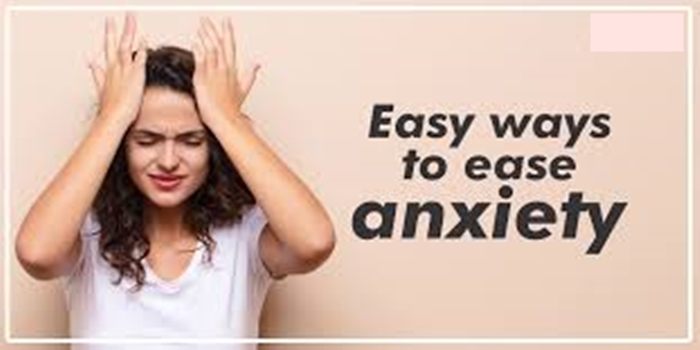In this article, we discussed the meaning of anxiety, the symptoms, we also talked about the causes, and the treatment how to prevent it.
Definition
Anxiety is a feeling of fear, tension, or worry that occurs as a response to real or perceived threats.
When a person feels afraid, it triggers the body’s stress response, also known as fight, flight, or freeze.
Symptoms of anxiety
The main symptom of anxiety is a feeling of worry. Other symptoms can include:
elevated heart rate
faster breathing
irritability
restlessness
muscle tension
difficulty concentrating
difficulty falling or staying asleep
If a person has severe anxiety, they may experience a panic attack, which causes an intense feeling of dread or panic that reaches a peak before subsiding. Symptoms may include:
rapid breathing (hyperventilation)
pounding heartbeat
sweating
shaking or trembling
a feeling of impending doom or lack of control.
Types of Anxiety
Generalized anxiety disorder (GAD)
People with GAD have persistent, pervasive feelings of anxiety or dread that do not have a specific focus. It is not a response Trusted Source to a stressful situation that then goes away once it is over, but a general feeling of worry that may affect many aspects of everyday life.
Panic disorder
People with panic disorder experience frequent Trusted Source and unexpected panic attacks. A person may have specific triggers, or they may not know the cause.
Specific phobia
Specific phobias are a fear of a particular object or situation, such as heights or spiders. Unlike other anxiety disorders, phobias focus on one specific trigger.
A person with a phobia might know their fear is illogical or extreme, but remain unable to control it when they encounter the trigger.
Agoraphobia
This is a fear and avoidance of places, events, or situations from which it may be difficult to escape, or where help would not be available in emergencies.
Social anxiety disorder
Social anxiety is a fear of negative judgment from others. A person with social anxiety may feel others are evaluating everything they do, or that they will be embarrassed or humiliated if they interact with people.
Separation anxiety disorder
Separation anxiety is when a person feels anxious after separating from a place or person that makes them feel safe, such as a parent.
Selective muteness
Some children experience this form of anxiety, in which they cannot speak in certain places or contexts, even though they have the ability to do so.
Causes of anxiety
Occasional anxiety is often a response to uncertainty about the future or worry about something that happened in the past.
For example, a person may feel anxious about taking a test, or worry they have made a decision they might regret.
Current situation: Life events that cause ongoing stress may contribute to the development of an anxiety disorder. Examples of these include financial struggles, being under pressure at work, or experiencing discrimination.
Past trauma: Traumatic events are incidents that cause an actual or perceived threat to a person’s safety. Even if these events happened a long time ago, they can still affect people years later.
Substance use: Some substances, such as stimulant drugs, can cause anxiety. Other substances may cause anxiety when a person experiences withdrawal.
Some physical factors include:
Brain structure or function: People with anxiety disorders may have Trusted Source a sensitive amygdaloid nucleus response. The amygdala is part of the brain that responds to danger.
Genetics: Some people may have a genetic predisposition toward anxiety.
Medical factors: Sometimes, anxiety is the product of a physical illness, such as a neurological disorder or hormonal imbalance. It can also be a side effect of some medications, or a result of experiencing long-term pain or other symptoms.
Treatment for anxiety
Self-care can ease anxiety
Sometimes, a person can ease anxiety at home without clinical supervision. Things that may help a person cope include:
relaxation techniques
physical exercise
getting enough sleep
reducing the use of caffeine or other stimulants
talking with a trusted loved one
Psychotherapy can ease anxiety
A first-line treatment for anxiety is psychotherapy, or talk therapy.
There are many types of talk therapy. Each one aims to help a person understand the thoughts, beliefs, or experiences that may be contributing to persistent anxiety, and ways of changing or coping with them.
Medications can ease anxiety
Some medications can reduce the symptoms of anxiety, making the condition more manageable. Some people take medications to make it easier to begin therapy, while others may take them on an ongoing basis.
Preventing anxiety
It is not always possible to prevent anxiety entirely. Many people experience anxiety when they are going through a challenging time.
However, researchers have suggested that building resilience to stress may reduce the likelihood of anxiety disorders. A 2020 review of past research highlighted several strategies that may help to reduce the risk by affecting a person’s gene activity, such as:
getting regular exercise
practicing mindfulness
having a supportive family environment
This research is still in its early stages, though. Other strategies that may help include:
reducing caffeine intake
maintaining a balanced, nutritious diet
keeping a regular sleep pattern
avoiding alcohol, cannabis, and other recreational drugs
checking with a health professional before using over-the-counter medicines or herbal remedies
conclusion
Anxiety is a natural emotion that many people experience. An anxiety disorder develops when this emotion becomes overstated or out-of-proportion to the trigger that causes it.
There are several types of anxiety disorders, including panic disorder, GAD, and social anxiety. Treatment can involve therapy or medication alongside self-help measures.


